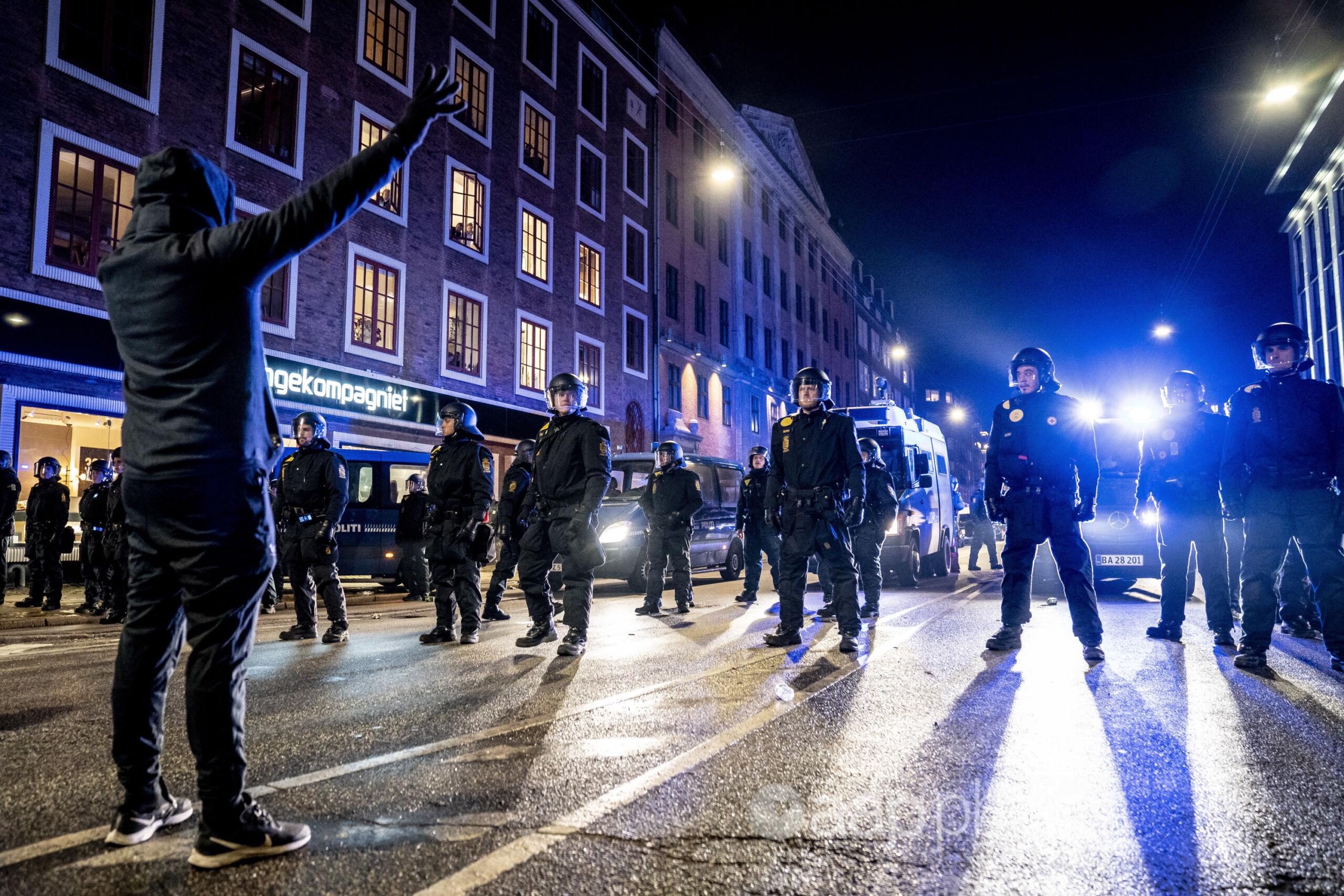The Statement
A video shared on Facebook claims protests in Denmark resulted in the dumping of the country’s “epidemic law”.
The video post, shared by a New Zealand account on July 31, features a video showing people protesting with a headline on the clip: “Denmark did it. No epidemic.”
A male narrator says: “After nine days of the protests, this law now has been abandoned. Apparently Denmark have been protesting en masse with pots and pans outside their parliament.” (video mark 8sec)
The video later switches to footage of a woman, who says: “They have thrown the epidemic law in the bin. Denmark did it!” (video mark 1min 4sec) She also claims that the “pots and pans” protest outside the Danish parliament contributed to the legislation being dropped.
At the time of writing, the post had been shared more than 1500 times while the video had been watched more than 15,000 times. The video has also been shared in a UK Facebook group here.

The Analysis
An initial draft for a new “epidemic law” in Denmark was scrapped in late 2020, but the country’s parliament passed an amended version in February, which is currently in force.
Legal experts told AAP FactCheck the video’s claim that the “pots and pans” protests resulted in the proposed legislation’s withdrawal is dubious. They said there was widespread opposition to the first draft, including from parties that support Denmark’s minority government.
The clips in the Facebook video were taken during protests in November 2020 against the government’s proposed update to the country’s epidemic act (epidemilov). The first part of the video shows Danes protesting with pots and pans outside the parliament in Copenhagen, while the second part features a Danish activist.
Denmark adopted an emergency epidemic act in March 2020, giving the government wide-ranging powers to deal with the COVID-19 outbreak. The act granted the power for access restrictions to be placed on public institutions, shops, nursing homes and hospitals, and public transport.
It also allowed authorities “to force people to be vaccinated”, according to the report from TheLocal.dk, despite there being no COVID-19 vaccines available at the time.
A sunset clause was also incorporated in the emergency law, which meant the entire act would expire in March 2021.
Ahead of the expiry date, the government began drafting a new epidemic act. However, the initial version drew widespread negative reaction, including from politicians and medical groups. Those opposed to the proposal included the Socialist People’s Party, which supports the ruling Social-Democrats in government.
Under the suggested legislation, authorities could forcibly examine, hospitalise, treat and isolate people infected with dangerous diseases, and the Danish Health Authority would have the power to define groups of people who must be vaccinated in order to contain and eliminate a “dangerous disease”.
The government soon backed down over the proposals, with Prime Minister Mette Frederiksen conceding that “a better balance must be found”.
While some online posts credited protesters with the draft’s withdrawal, Kristian Cedervall Lauta, an associate dean for education at Copenhagen University’s Faculty of Law, questioned the true impact of the demonstrations.
“While the protests might have played a role, I don’t think the statement, presuming causality, is correct,” he told AAP FactCheck in an email.
“The act was also widely criticised by civil society, the opposition, and the government’s own parliamentary foundation.”
A new version of the epidemic act was eventually agreed upon in December 2020 and was formally approved by the Danish parliament in February. It reduced the scope for coercive measures to be introduced, and no longer included the possibility that vaccinations could be ordered. The act took effect as soon as the previous law expired on March 1.
Janne Rothmar Herrmann, a health law expert at Copenhagen University, told AAP FactCheck in an email that no epidemic acts in Denmark were repealed due to protests, as suggested in the video, throughout the drafting process.
A spokeswoman for the Danish Ministry of Health told AAP FactCheck in a statement via email: “The Danish epidemic law provides parliamentary control and transparency as regards the Danish authorities’ handling of serious infectious diseases which affect the society as such – also in the future. (It) does not contain the possibility of compulsory vaccination.”
The Verdict
The video misleadingly suggests that Denmark’s “epidemic law” was abandoned due to widespread protests. While an unpopular draft including scope for forced vaccinations was withdrawn, a new epidemic act was successfully introduced to replace the former laws when they expired.
In addition, the draft laws drew broad opposition, including from medical groups and a party supporting the government. For this reason, Danish legal experts say the protests were not the main catalyst for the proposal being overhauled.
Missing Context – Content that may mislead without additional context.
* AAP FactCheck is an accredited member of the International Fact-Checking Network. To keep up with our latest fact checks, follow us on Facebook and Twitter.
All information, text and images included on the AAP Websites is for personal use only and may not be re-written, copied, re-sold or re-distributed, framed, linked, shared onto social media or otherwise used whether for compensation of any kind or not, unless you have the prior written permission of AAP. For more information, please refer to our standard terms and conditions.


















